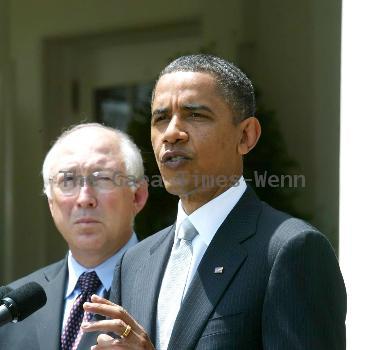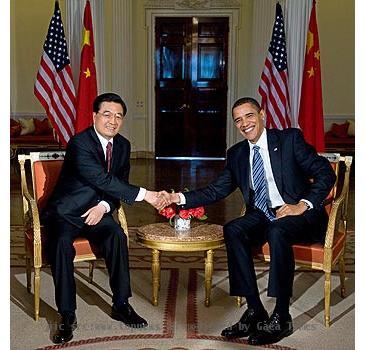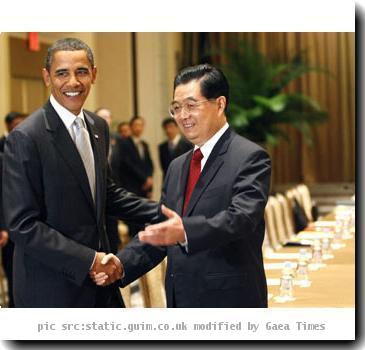World leaders focusing on nuclear threats posed by Iran and North Korea
By Martin Crutsinger, APSaturday, June 26, 2010
World summit focuses on nuclear threats
HUNTSVILLE, Ontario — Failing to resolve differences on economic strategy, world leaders turned their attention Saturday to thorny foreign policy problems. The United States and Japan pushed for a strong condemnation of North Korea following the sinking of a South Korean warship.
The Group of Eight major industrial countries were grappling with the best approach to take regarding the nuclear ambitions of North Korea and Iran as they wrapped up two days of talks at a resort in Canada’s Muskoka lake district.
The G-8 talks were set to conclude with a communique and a closing news conference by Canadian Prime Minister Stephen Harper, the host for the talks, before the G-8 leaders move to Toronto for discussions in the larger Group of 20.
The G-8 includes the traditional global economic powers — the United States, Japan, Germany, France, Britain, Italy and Canada plus Russia and the G-20 expands that group to icnlude major developing nations such as China, India and South Korea.
The final session of the G-8 was devoted to foreign policy. Japanese officials said that they had joined with the United States to push for strong language in the G-8 statement condemning North Korea for the attack on the warship. But the Japanese said that Russia was arguing for a change in the wording of the joint statement as it related to North Korea.
Alexei Pavlov, a spokesman for Russian President Dmitry Medvedev, declined to comment on the reported split over the language denouncing North Korea.
Dimitri Soudas, chief spokesman for the Canadian prime minister, said that Harper viewed the attack on the ship as a “very serious provocation and a threat to regional stability.”
South Korea has already referred the matter to the U.N. Security council, which could adopt a resolution condemning the North for the sinking or issue a less stringent presidential statement. Either action would require support from China, North Korea’s main ally, and Beijing has thus far resisted. China is a member of the G-20 but not the G-8.
On Iran, the U.S. and European nations will push other major powers to join them in imposing tough new sanctions on Tehran over its suspect nuclear program, a move that would build on expanded Security Council measures adopted this month. But China and Russia only reluctantly supported those sanctions and have balked at new unilateral steps against Iran.
Previous summit gatherings have attracted massive protests by anti-globalization forces. But so far the Canadian protests have been smaller. The largest demonstration, a march in downtown Toronto sponsored by labor unions, was scheduled for Saturday.
Police said before the Saturday march that 32 arrests had been made with security being provided by an estimated 19,000 law enforcement officers drawn from all regions of Canada.
The foreign policy discussions among the leaders of the G-8 took place Saturday after an opening day of talks during which the group failed to resolve a dispute over the proper mix of government spending and deficit reductions needed to keep the global economy on track.
President Barack Obama made the case that the global economy remained fragile and should not be put at risk by countries moving too rapidly to trim their bulging deficits through spending cuts and tax increases, which can slow economic growth.
But leaders of Britain, Germany, Canada and Japan argued that deficit cuts were needed to reassure nervous investors, given the severe market turmoil experienced in May after the near-default of Greece on its huge debt burden.
The G-20 will begin with a dinner Saturday night at the Royal York, one of Toronto’s oldest hotels. The topic at dinner will be the state of the global economy.
The G-20 meetings will continue Sunday and will conclude with a joint communique and closing news conferences by various leaders including Obama.
The G-20 leaders’ summit, launched in response to the global financial crisis in the fall of 2008, has now replaced the G-8 as the world’s premier forum for discussing and coordinating economic policy.
In addition to the group discussions, the leaders were holding a series of one-on-one talks.
Obama was meeting Saturday with new British Prime Minister David Cameron for the first time since Cameron took power last month. Those talks were expected to cover the difficulties posed by the BP oil spill, the biggest offshore oil spill in U.S. history.
Obama was also to meet with South Korean President Lee Myung-Bak and in a third meeting was to talk with Chinese President Hu Jintao. The discussions with Hu are coming a week after China announced it would start allowing its currency, the yuan, to rise in value against the dollar. The administration had been pushing China to take this step as a way of boosting U.S. exports to China.
Obama arrived in Canada fresh from a congressional win on financial overhaul, a victory that the administration hopes will persuade the other G-20 nations to adopt their own tough standards for banks in an effort to avoid a repeat of the 2008 financial crisis that pushed the global economy into a deep recession.
But in Friday’s discussions, Obama made no headway in his call for more stimulus to keep the world economy growing. Instead, he ran into strong opposition from countries wanting to put deficit reduction first.
There was little expectation of economic breakthroughs on the deficit versus stimulus debate, or on the issue of financial overhaul by the time the three days of talks end on Sunday. The G-20 leaders were expected to push tough decisions on global banking regulations off to their next meeting in Seoul, South Korea, in November.
Divided on economic remedies, the leaders searched for common ground on other issues.
Harper announced late Friday that the G-8 leaders had pledged to contribute $5 billion over the next five years to an initiative to support health care for mothers and children in poor countries. He said Canada’s contribution was $1.1 billion and the White House announced the U.S. would contribute $1.35 billion over the next two years, subject to congressional approval. Japan announced a pledge of $500 million over five years.
Crutsinger reported from Toronto. Associated Press writers Jane Wardell, Emma Vandore and Jeannine Aversa contributed from Huntsville; Rob Gillies, Foster Klug and Tom Raum from Toronto; and Matthew Lee from Washington.
Tags: Asia, Barack Obama, Canada, China, District Of Columbia, East Asia, Eastern Europe, Europe, Events, Foreign Policy, G-8 Summit, Greater China, Hu Jintao, Huntsville, Iran, Japan, Lee Myung-bak, Middle East, North America, North Korea, Ontario, Protests And Demonstrations, Russia, South Korea, Summits, Toronto, United Kingdom, United States, Western Europe, World-summit



